Centre for Development Studies marks 50 years with DSA2025 conference on navigating crisis
418 participants joined us in person at the University of Bath – with a further 232 online – for DSA2025, themed Navigating crisis: dangers and opportunities in development. It was a timely theme as delegates gathered amidst multiple conflicts, shrinking aid budgets, and setbacks in gender equality and climate action to name but a few global issues.
The theme of the conference was devised by researchers at the University of Bath’s Centre for Development Studies, as they marked their 50th anniversary:
“The multiplication, intensification and interconnectedness of crises today make the task of navigating more challenging, some might even say impossible,” said Prof. Joe Devine, CDS member and Associate PVC (Research – Doctoral). “The focus of this year’s DSA conference gives time and space to examine and learn from the existing dangers and opportunities of our current crises but also to imagine more secure futures built on the values of solidarity, egalitarianism and justice.”
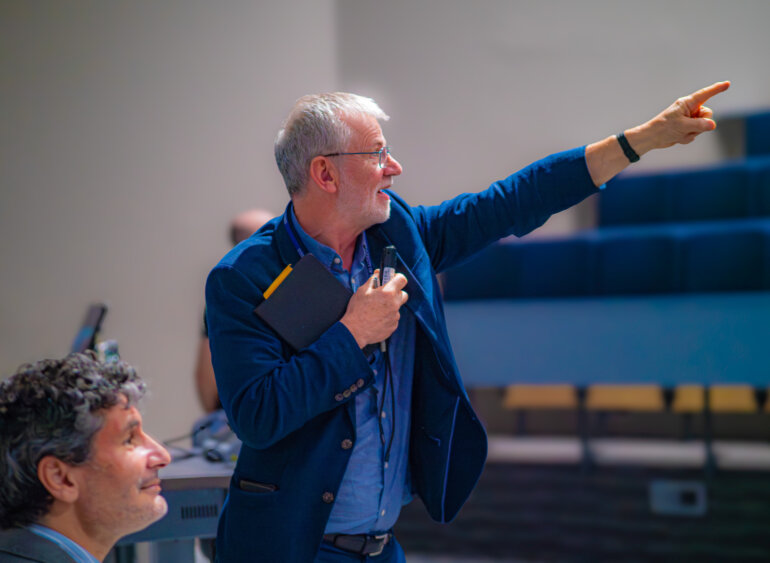
Thought-provoking keynotes
The conference theme prompted a range of reflections from keynote speakers:
- Yuen Yuen Ang challenged us to consider what worldviews and power structures we reinforce by using the term polycrisis.
- Akosua Adomako Ampofo and Jean Drèze spoke of hope and joy during crisis. Ampofo emphasised storytelling as a strategy to dismantle fear, while Jean Drèze acknowledged how hard it is to find hope when we are faced with multiple crisis. He said the destruction of Gaza is a symbol of the multiple crisis we are concerned with in this conference but said despite their oppression, the people of Gaza were a symbol of hope with their inspiring stories of courage and solidarity.
- Jayati Ghosh advocated for transdisciplinary collaboration in economics, grounded in decolonial thinking and open to alternatives beyond the mainstream and Diego Sánchez urged us to build economic tools that serve people not markets.
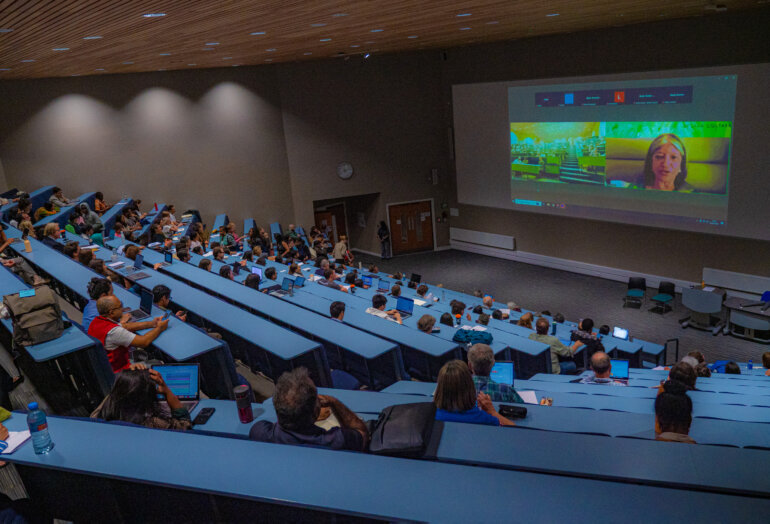
A wide-reaching programme
With 425 papers across 73 panels, DSA2025 showcased diverse schools of thought. On LinkedIn, Neha Parikh described the conference as a space for “work that asks difficult questions and doesn’t rush the answers.”
A panel hosted with the International Association for Feminist Economics explored synergies between feminist economics and development studies. Uma Kambhampati noted both disciplines must reckon with decolonisation, given their shared concern with inequality and power.
Academics from Gaza contributed to panels on scholasticide, closing the conference with a powerful action-planning session. Participants committed to monthly check-ins and collective support across the many challenges facing academics in conflict zones.
Ignacio Feged, from the Economic Policy Research Institute, attended from the US as an undergraduate. He presented a paper with colleagues on the role of local actors in sustainable, accountable aid, drawing lessons from mutual aid in Sudan, Myanmar and Kosovo: “It was amazing for David [co-author] and I in the early stages of our career, being able to meet so many incredible people and make great connections, especially with people who we’ve only read about. Putting a face to the name has been incredible. Everybody’s been so lovely and receptive and helpful and really eager and willing to engage with us.”
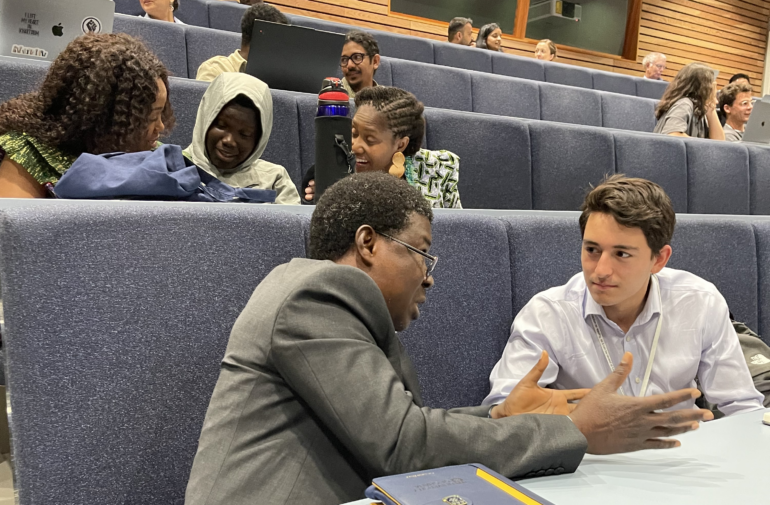
Making in-person attendance possible
Conflicts in sub-Saharan Africa featured in many other conference papers, including one by Michael Osew (International Peace Support Training Centre), exploring the integration of refugees in Kenya. Michael attended as a funded delegate through a central fund supporting participation from the Global South, students, and precarious academics.
He reflected on the value of this support: “Had I not gotten that funding from DSA, I don’t think I would have managed to participate. And I would have lost so much. In-person attendance has more value — I’ve been able to network, meet people, engage with publishers, and have one-on-one discussions that I wouldn’t have had online. This opportunity has been an eye-opener.”
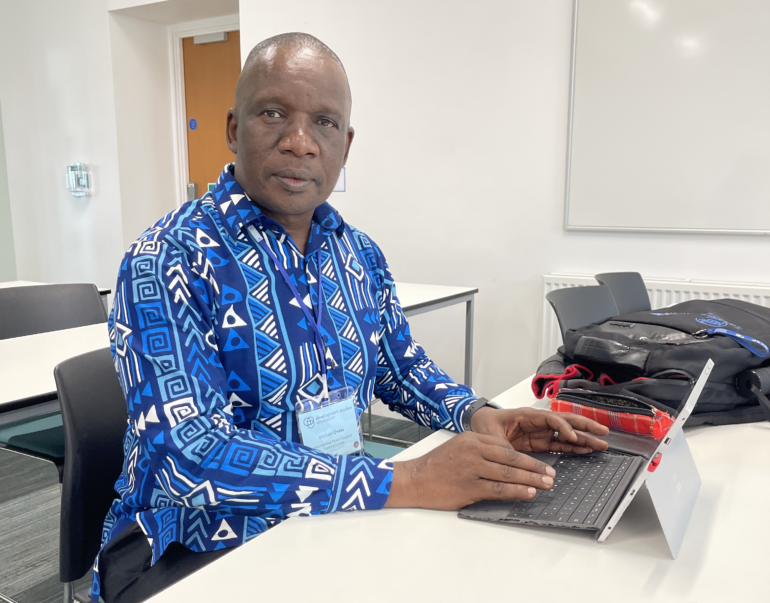
50 years of CDS at Bath
For fifty years, the Centre for Development Studies at the University of Bath has advanced critical thinking on poverty, wellbeing and social justice. This mission continues today through major research on the political economy of resources, food security, sustainability, and conflict.
Current projects include UKRI-funded research on China’s infrastructure investments, ESRC-funded work on the politics of famine, and Leverhulme-funded study into just transitions in solar energy. CDS offers a robust suite of master’s programmes in international development, with pathways in economics, social justice, sustainability, conflict and humanitarianism – and, new for this year, education.
The conference brought these themes to life, offering CDS staff, students and alumni a space to engage with global development challenges.
“We’re proud to be hosting this year’s DSA conference at the University of Bath – especially in a year that marks 50 years of our Centre for Development Studies,” said Professor Sarah Hainsworth, Pro-Vice-Chancellor (Research and Enterprise). “This is a powerful opportunity to bring together global researchers, practitioners and students to confront the pressing challenges of our time. Through collaboration, critical thinking and inclusive dialogue, universities like ours can play a central role in shaping fairer, more sustainable futures – and in preparing the next generation of changemakers to lead that work.”
To find out more about CDS, read our member spotlight.
Supporting future generations
The conference would not have been possible without our volunteers – many of whom were University of Bath alumni, master’s students, and PhD candidates from CDS.
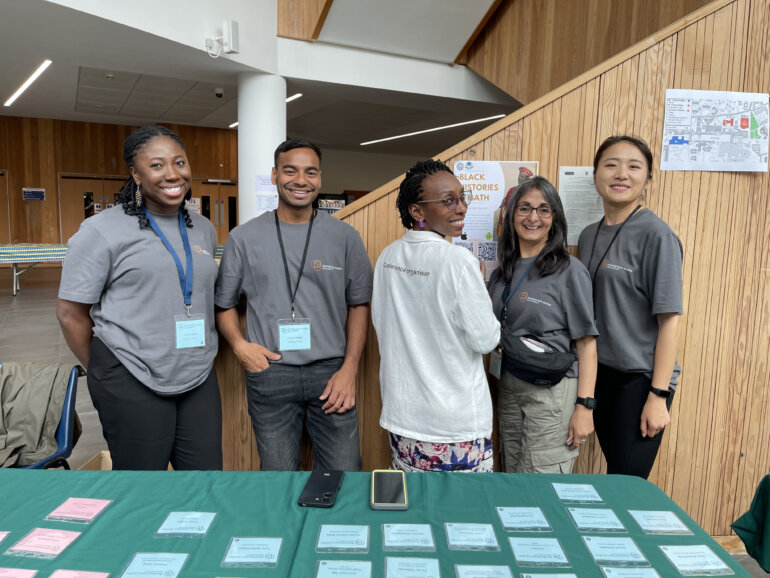
“I completed my master’s in Humanitarianism, Conflict and Development here at Bath, and I’m now starting a PhD on polycrisis – closely linked to this conference’s theme. I’d never been to an academic conference before, so volunteering felt like a great way in. I’ve learned a lot about the academic process, especially from people already doing PhDs. That’s been the biggest takeaway for me, just two months into my own journey.” said Bath alum and DSA volunteer Gordon Thomson
Student delegates and PhD candidates had access to a range of opportunities: a well-attended student meeting discussing on skills development, networking, and advocacy (including campaigning around UK immigration rules affecting postdocs); masterclasses offered one-to-one support for PhD candidates; and a policy engagement workshop helped early career researchers build practical skills. Undergraduate and PGT volunteers also gained insight into potential PhD pathways and made valuable academic connections.
Looking ahead to 2026
Next year’s conference will be held at the University College Dublin from 8 to 10 July with a suggested theme looking at power and agency. Save the date and sign up for our newsletter to stay informed.
We’ll share further conference stories in the coming weeks – keep an eye on our social media channels. And if your conference experience could translate into an 800-word blog or your paper is of wide interest to development studies and you’d like to create a blog, please contact Rowena, DSA communications.
